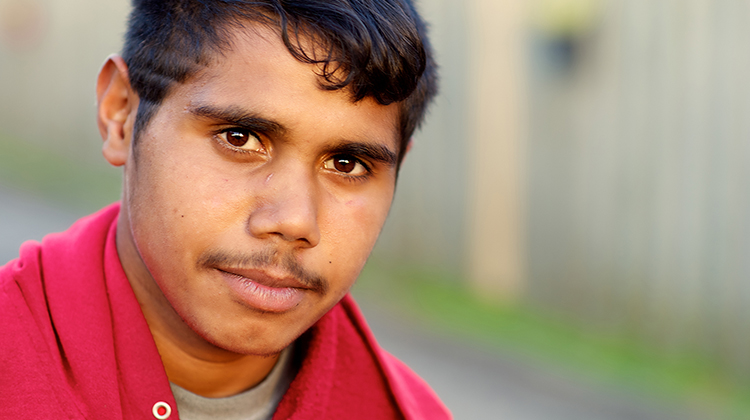Aboriginal and Torres Strait Islander young three times more likely to be homeless

It’s not all bad news but Aboriginal and Torres Strait youth report high rates if dissatisfaction with their lives and high rates of bullying and housing insecurity.
Aboriginal and Torres Strait Islander young people are nearly three times more likely than their non-Indigenous youth to have experienced living with no fixed address, lived in a refuge or in transitional accommodation at some stage (16.2 per cent vs 5.9 per cent), and were twice as likely to have couch surfed (28.9 per cent vs 12.0 per cent).
When compared to non-Indigenous respondents, Aboriginal and Torres Strait Islander young people reported substantially higher levels of personal concern about domestic/family violence (16.9 per cent compared with 8.6 per cent), drugs (14.5 per cent compared with 7.0 per cent), discrimination (16.8 per cent compared with 9.9 per cent), alcohol (11.7 per cent compared with 4.9 per cent) and suicide (20.5 per cent compared with 13.9 per cent).
More than half of Aboriginal and Torres Strait Islander youth indicated they were happy about their lives overall and were positive about the future, but more than three in 10 indicated some form of distress and almost double the proportion felt very sad/sad with life as a whole (18.9 per cent compared with 10.6 per cent of non-Indigenous respondents).
Close to three in 10 (29.9 per cent) Aboriginal and Torres Strait Islander respondents reported that they have been bullied in the past year (compared with 20.3 per cent of non-Indigenous respondents), which may be linked to racial discrimination.
The challenges faced by Aboriginal and Torres Strait Islander young people were revealed in Mission Australia’s new National Aboriginal and Torres Strait Islander Youth Report: Youth Survey 2019.
In response to the report findings, Mission Australia has joined forces with Professor Tom Calma AO to call for more culturally and age appropriate support services co-designed and delivered with Aboriginal and Torres Strait Islander young people, as well as more social and affordable homes.
Mission Australia CEO, James Toomey said, “Aboriginal and Torres Strait Islander young people must be central to the co-design and co-implementation of the services that they need. It’s also vital and logical that Aboriginal and Torres Strait Islander people have greater influence over the policies, programs and services that affect them.”
Professor Tom Calma AO, Chancellor, University of Canberra and Co-Chair, Voice to Government Senior Advisory Group, said, “Importantly, I’m pleased that there is much to celebrate in this report. Many Aboriginal and Torres Strait Islander respondents say they are happy, they’re engaged in education, they highly value their family and friendships, are confident in their ability to achieve their goals and are optimistic about their futures.
“However, Aboriginal and Torres Strait Islander young people also told us that they’re facing unique difficulties such as unacceptably high levels of bullying, that we know is linked to racial discrimination, as well as poor mental health, homelessness and insecure housing. They also experience a range of personal concerns in much higher proportions that non-Indigenous young people.
“I urge politicians and bureaucrats to read the report, respond to the recommendations and hear the voices of Australia’s young people and particularly, Aboriginal and Torres Strait Islander young people.”
National Aboriginal and Torres Strait Islander Youth Report: Youth Survey 2019 Key recommendations
- Put young Aboriginal and Torres Strait Islander people at the centre of service design
- Aboriginal and Torres Strait Islander people should have influence over the policies and services that affect them
- Mainstream agencies should deliver culturally-appropriate programs and, wherever possible, work in partnership with Aboriginal and Torres Strait Islander people, communities and organisations
- Design programs for Aboriginal and Torres Strait Islander young people that support all domains of social and emotional wellbeing
- Develop a national plan to support Aboriginal and Torres Strait Islander young people across all of their life domains
- Support schools to stamp out racism and discrimination by teaching about Aboriginal and Torres Strait Islander languages, cultures and histories
- Develop a national plan to end homelessness with clear targets for ending Aboriginal and Torres Strait Islander homelessness
- Ensure a permanent increase to income support payments for all young people and their families to keep them out of poverty.